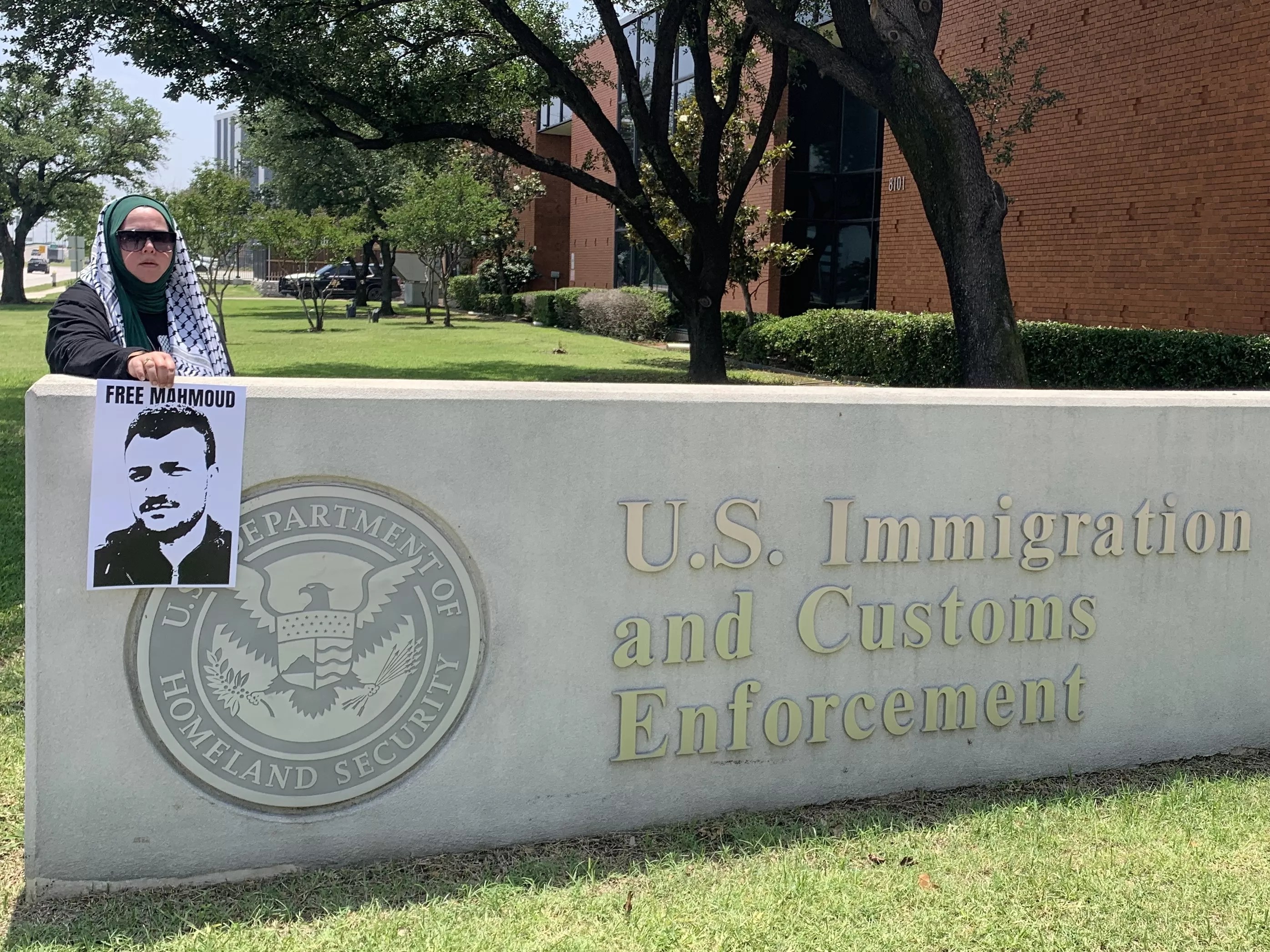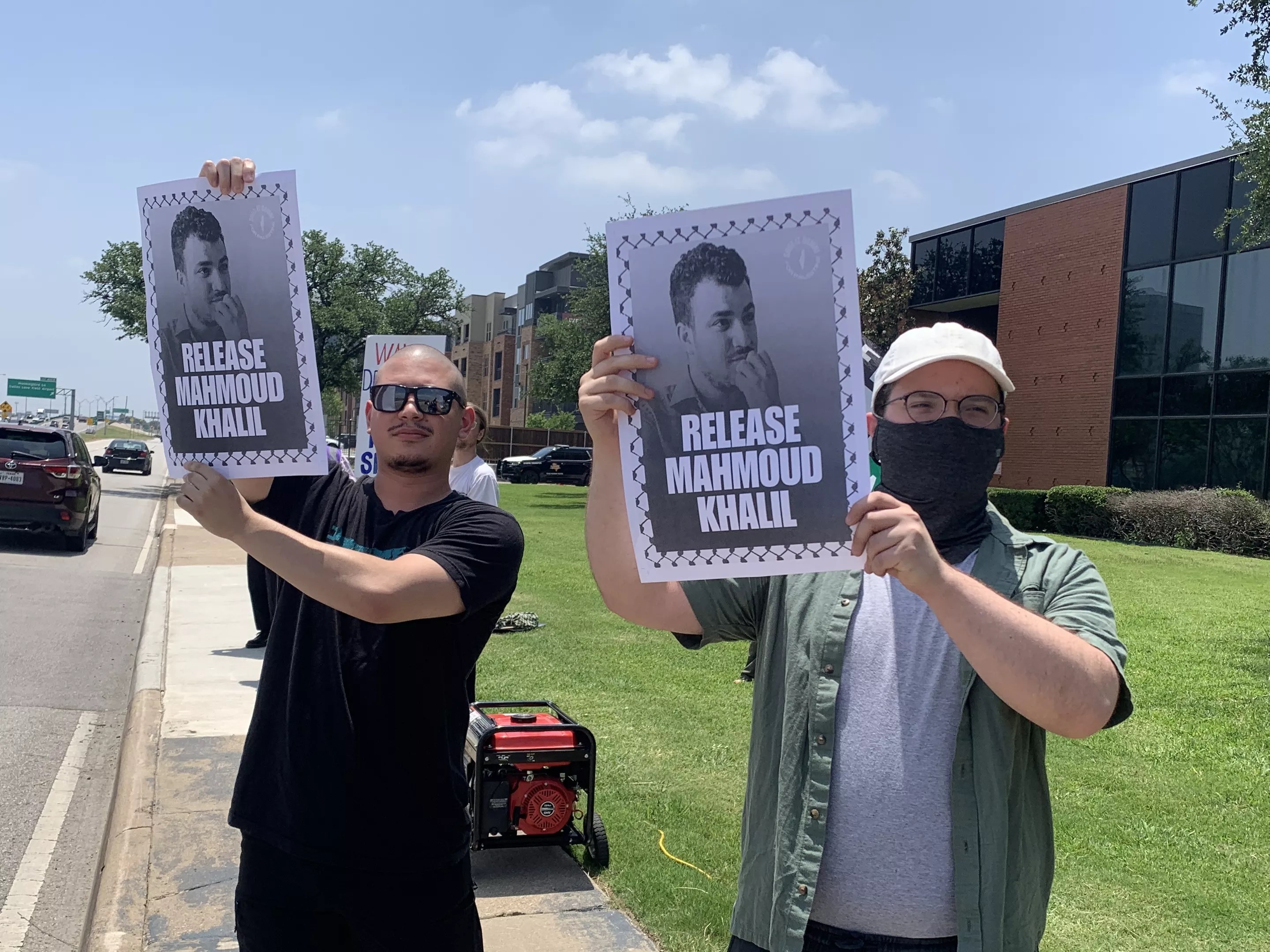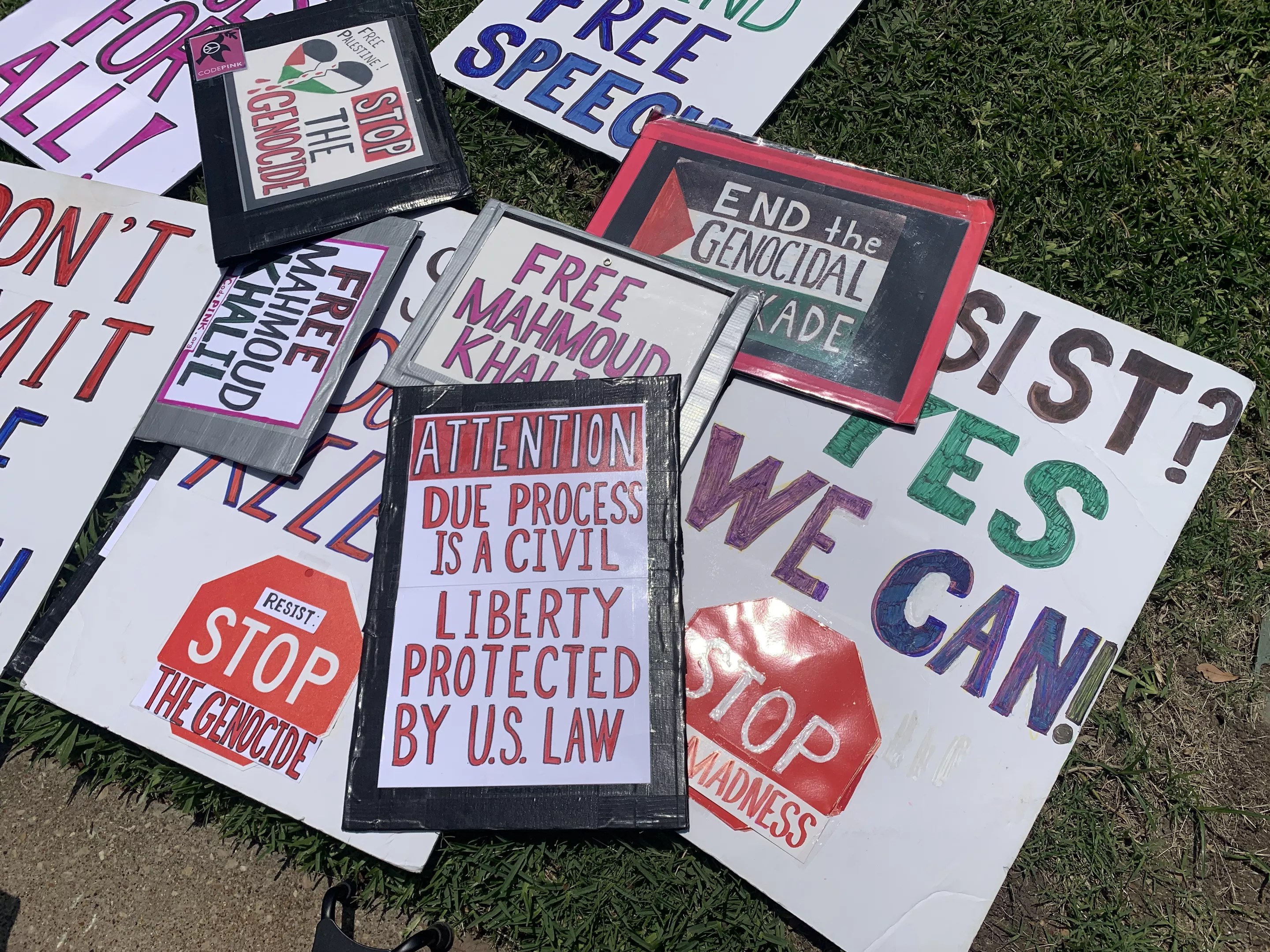
Emma Ruby

Audio By Carbonatix
Two buses filled with 100 pro-Palestine and First Amendment activists from Dallas drove to Jena, Louisiana, on Thursday. At the same time, another 50 individuals protested outside of the North Texas United States Immigration and Customs Enforcement (ICE) office, calling for the release of Columbia University graduate student Mahmoud Khalil.
Khalil, a leader of the university’s student pro-Palestine movement, was arrested in his home in March by federal immigration authorities despite his status as a legal permanent resident of the U.S. The Trump Administration has called for Khalil’s deportation, stating that his political activities promoted campus antisemitism and posed a threat to national security. Khalil’s attorneys argue their client would face danger if deported, and, in a New Jersey federal court Thursday, told a judge that Khalil, the father of a one-month-old, should be released from his Louisiana confinement as his immigration case is evaluated.
The judge, Michael Farbiarz, had not weighed in on Khalil’s case at the time of publishing.
For the Dallasites who gathered outside of the ICE office located off of North Stemmons Freeway on Thursday, Khalil’s case marks an escalation in the response to the pro-Palestine student movements that emerged in the weeks following the October 7, 2023, attack on Israel that sparked the ongoing war between Israel and Hamas.
Several other student activists were detained around the same time as Khalil’s arrest and have been freed. Khalil’s continued incarceration represents an “unjustifiable” assault on the First Amendment freedom of speech, Victor Macias, a 24-year-old Veteran from Pleasant Grove, told the Observer.

Victor Macias (left) and Ethan Castillo (right) stood alongside the road and encouraged drivers to look at photos of Mahmoud Khalil.
Emma Ruby
“I feel like this is a crucial point in American history. This is something that can be talked about for years to come, something we can learn from,” Macias said. “This can either set future dangerous precedents, or we can learn from it and say, ‘Look at what the Trump Administration did back in 2025.'”
He feels especially connected to Khalil’s case because Khalil is a student. Macias went into the military because it provided him a path to education, something he now feels Khalil is being deprived of. On Wednesday, Columbia University’s acting president acknowledged Khalil’s absence at the graduation ceremony in which he would have received his diploma, and was met with boos of protest.
Macias has attended other protests hosted by the Palestinian Youth Movement, one of the groups that organized Thursday’s demonstration, in the past. However, Fatima Qasem, a student at the University of Texas at Dallas and member of the PYM, told the Observer that the organization has seen an influx of new faces since Khalil’s arrest.
“We’ve seen a lot of people who maybe aren’t supportive of Palestine start coming and protesting with us,” Qasem said. “There’s power in numbers, and the more we speak out, the more it shows that we’re against what’s happening. We’re standing with students like Mahmoud Khalil.”

A collection of signs voiced support for Khalil, Palestine and the First Amendment.
Emma Ruby
During Thursday’s protest, organizers led chants calling for the abolition of ICE and Khalil’s release. The controversial phrase “from the river to the sea,” which is defined as antisemitic by the Anti-Defamation League but considered protected speech by the Foundation for Individual Rights and Expression, was a frequent refrain.
Some protesters held large images of Khalil’s face toward traffic, urging drivers to “look at him.” Ethan Castillo, a Mesquite resident who told the Observer the protest was his first, acknowledged that protesting can make onlookers uncomfortable, but that history has shown the importance of activism.
“It’s like Vietnam. We’re doing what the kids did back then for the Vietnamese people,” Castillo said. “You can’t forget these things. Horrific things were happening then, similar to what’s happening now. … We’re seeing a resurgence of activism, and I think it’s beautiful.”